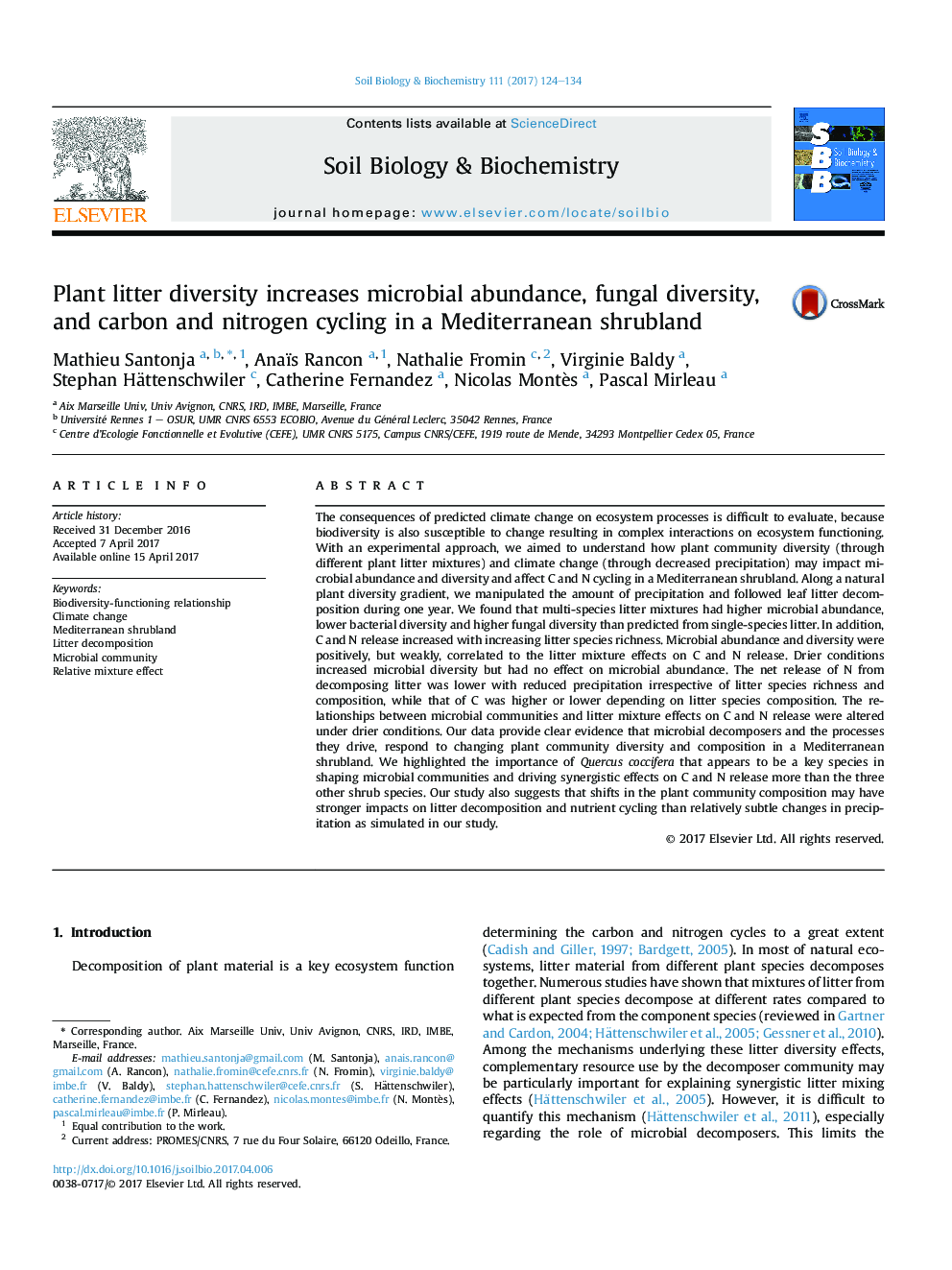| Article ID | Journal | Published Year | Pages | File Type |
|---|---|---|---|---|
| 5516292 | Soil Biology and Biochemistry | 2017 | 11 Pages |
â¢Plant diversity and precipitation regime impact litter decomposition in shrubland.â¢Plant litter mixtures increase microbial abundance and alter microbial diversity.â¢C and N release increase with increasing litter species richness.â¢Drier conditions increase microbial diversity.â¢Drier conditions reduce net N release and increase synergistic effects on C release.
The consequences of predicted climate change on ecosystem processes is difficult to evaluate, because biodiversity is also susceptible to change resulting in complex interactions on ecosystem functioning. With an experimental approach, we aimed to understand how plant community diversity (through different plant litter mixtures) and climate change (through decreased precipitation) may impact microbial abundance and diversity and affect C and N cycling in a Mediterranean shrubland. Along a natural plant diversity gradient, we manipulated the amount of precipitation and followed leaf litter decomposition during one year. We found that multi-species litter mixtures had higher microbial abundance, lower bacterial diversity and higher fungal diversity than predicted from single-species litter. In addition, C and N release increased with increasing litter species richness. Microbial abundance and diversity were positively, but weakly, correlated to the litter mixture effects on C and N release. Drier conditions increased microbial diversity but had no effect on microbial abundance. The net release of N from decomposing litter was lower with reduced precipitation irrespective of litter species richness and composition, while that of C was higher or lower depending on litter species composition. The relationships between microbial communities and litter mixture effects on C and N release were altered under drier conditions. Our data provide clear evidence that microbial decomposers and the processes they drive, respond to changing plant community diversity and composition in a Mediterranean shrubland. We highlighted the importance of Quercus coccifera that appears to be a key species in shaping microbial communities and driving synergistic effects on C and N release more than the three other shrub species. Our study also suggests that shifts in the plant community composition may have stronger impacts on litter decomposition and nutrient cycling than relatively subtle changes in precipitation as simulated in our study.
